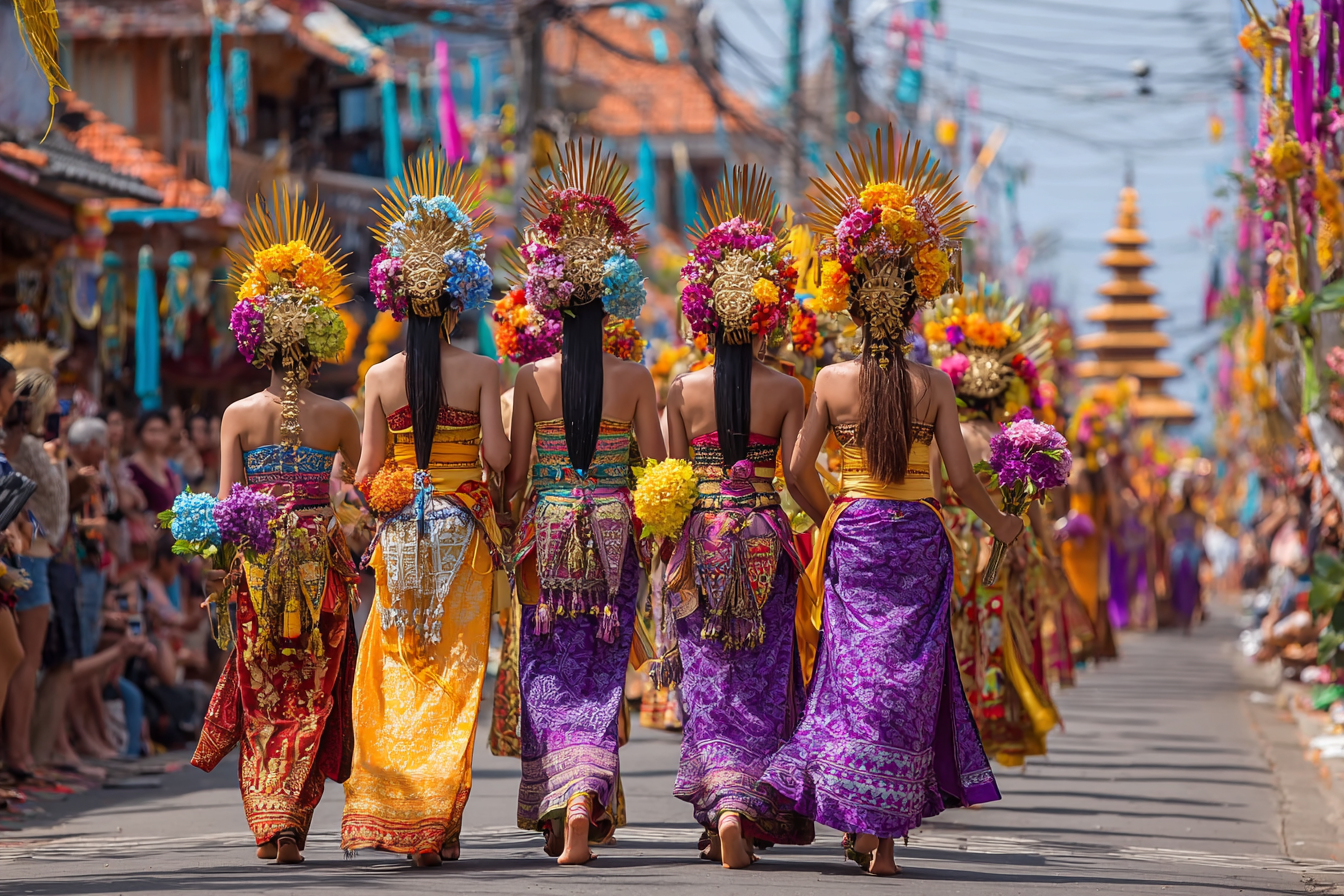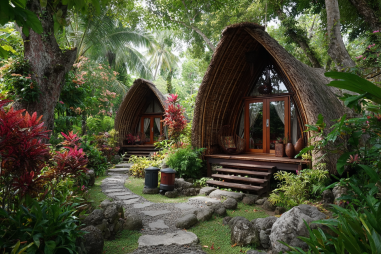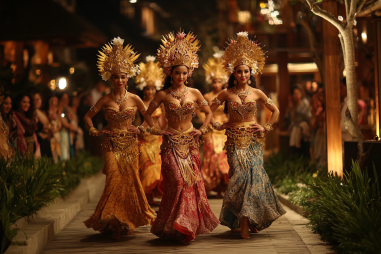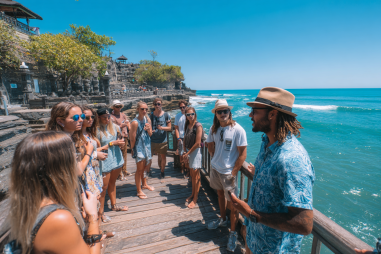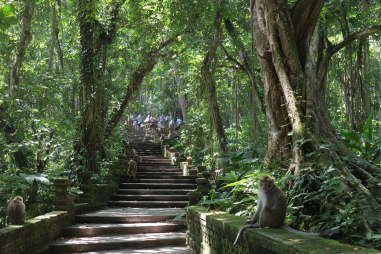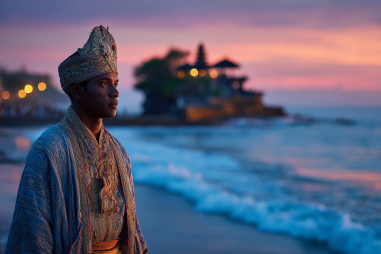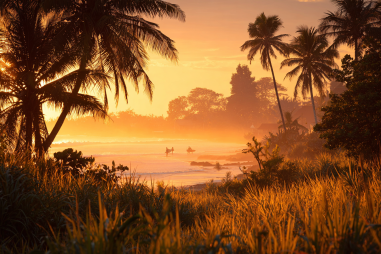Canggu, a vibrant coastal village in Bali, is not only known for its stunning beaches and trendy cafés but also for its rich tapestry of cultural festivals that bring the community together in colorful celebrations. These festivals offer a unique window into Balinese traditions, spirituality, and arts, providing visitors with a meaningful way to connect with the local culture. Whether it’s sacred religious ceremonies or lively music and art events, Canggu’s festivals are a testament to the island’s deep-rooted heritage. In this article, we explore the most notable cultural festivals in Canggu, when they occur, and how travelers can best enjoy these events while respecting local customs.
Understanding Balinese Religious Ceremonies
Balinese culture is deeply intertwined with religion, predominantly Hinduism, which plays a central role in daily life and community celebrations. In Canggu, as in other parts of Bali, religious ceremonies are a regular occurrence, marking important moments in the spiritual calendar. These ceremonies often involve offerings, prayers, and traditional dance performances at temples. The community gathers to honor ancestors, seek blessings, and maintain harmony between the physical and spiritual worlds.
Visitors to Canggu can witness these ceremonies taking place at local temples, often accompanied by intricate decorations and the unmistakable sound of gamelan music. Understanding the religious significance behind these events enhances appreciation and encourages respectful participation.
Galungan and Kuningan Celebrations
Two of the most significant religious festivals in Bali, including Canggu, are Galungan and Kuningan. Galungan marks the time when ancestral spirits return to earth, and it is celebrated with great enthusiasm. The festival lasts for 10 days and is characterized by the erection of bamboo poles known as penjor, decorated with coconut leaves, fruits, and flowers, lining the roads and temple entrances.
During Galungan, families prepare elaborate offerings, and temples are filled with worshippers dressed in traditional attire. The festival culminates with Kuningan, a day that bids farewell to the ancestral spirits, with additional offerings and ceremonies. Both events provide visitors with an immersive experience into Balinese spirituality and community life.
Nyepi Day: The Day of Silence
Nyepi, Bali’s unique New Year celebration, is observed as a “Day of Silence.” Unlike other festivals filled with noise and activities, Nyepi is marked by complete quietness and inactivity across the island, including Canggu. The day is dedicated to self-reflection, meditation, and a symbolic cleansing of negative energies.
On Nyepi Day, airports close, streets are empty, and even tourists are expected to stay indoors. While it may seem unusual for visitors, it’s a profound cultural experience respecting Bali’s spiritual rhythm. The day before Nyepi involves lively parades with Ogoh-Ogoh, large paper-mâché effigies symbolizing evil spirits, which are paraded and then burned to purify the community.
Arts and Music Festivals in Canggu
Canggu is not just a spiritual hub but also a hotspot for contemporary arts and music festivals that celebrate Balinese creativity alongside modern influences. Throughout the year, various events showcase traditional dance, music, painting, and even modern electronic music, reflecting the area’s eclectic cultural scene.
Festivals such as the Bali Spirit Festival, though broader than just Canggu, often have events in and around the village. These gatherings invite locals and tourists alike to enjoy yoga sessions, dance workshops, art exhibitions, and live music performances, fostering a vibrant communal atmosphere.
How Tourists Can Experience Festivals Respectfully
Participating in Canggu’s cultural festivals as a tourist is a rewarding experience when done considerately. Here are some tips to ensure respectful engagement:
- Learn about the festival’s significance before attending.
- Dress modestly, especially when visiting temples or sacred events.
- Ask permission before taking photos, especially during ceremonies.
- Observe from a respectful distance, avoiding disruption of rituals.
- Support local vendors by purchasing traditional crafts and foods.
- Follow any instructions from local guides or ceremony leaders.
By following these guidelines, visitors can honor Balinese customs and deepen their cultural understanding.
Festival Etiquette and Photography Tips
When attending festivals in Canggu, etiquette is crucial to ensure a positive cultural exchange. Key points to keep in mind:
- Remove your shoes when entering temple grounds.
- Women should be cautious about physical contact during certain ceremonies.
- Respect silence and prayer sessions; avoid loud conversations or distractions.
- When photographing, always seek approval, and avoid flash photography which can disturb rituals.
- Do not step on offerings or sacred objects placed on the ground.
These simple actions demonstrate respect and help preserve the integrity of the festival experience.
Local Foods and Crafts During Festivals
One of the highlights of participating in Canggu’s cultural festivals is savoring the local cuisine and browsing traditional crafts. During festivals, stalls often offer delicious Balinese dishes like nasi campur (mixed rice), sate lilit (minced fish satay), and sweet treats like dadar gulung (pandan-flavored rolled pancakes). These foods not only taste amazing but also offer a glimpse into the island’s culinary heritage.
Additionally, festivals provide an opportunity to purchase hand-crafted goods such as woven textiles, wood carvings, and intricate jewelry. Buying directly from artisans supports the local economy and helps keep traditional crafts alive.
Planning Your Visit Around Festival Dates
To fully immerse yourself in Canggu’s cultural life, planning your trip around key festival dates is ideal. Since many festivals follow the Balinese Pawukon calendar, which differs from the Gregorian calendar, dates can vary each year.
Some tips for planning include:
- Check reliable local sources or tourism boards for updated festival calendars.
- Consider booking accommodations well in advance, as festivals can attract many visitors.
- Balance festival attendance with time for relaxation and other sightseeing.
- Be prepared for changes in local transportation during major events.
Attending these festivals offers a richer, more authentic Balinese experience and a chance to witness traditions that have been preserved for centuries.
Embracing the Spirit of Canggu’s Cultural Festivals
The cultural festivals in Canggu offer a rare opportunity to explore Bali’s spiritual depth, artistic vibrancy, and communal warmth. Whether observing the solemnity of Nyepi, the joyous rituals of Galungan and Kuningan, or the energetic creativity of arts festivals, visitors gain insight into a culture that balances tradition and modernity beautifully.
By approaching these celebrations with curiosity, respect, and openness, travelers can create lasting memories and forge meaningful connections with the local community. Planning ahead, dressing appropriately, and engaging thoughtfully will ensure your festival experience in Canggu is both enjoyable and culturally enriching.

